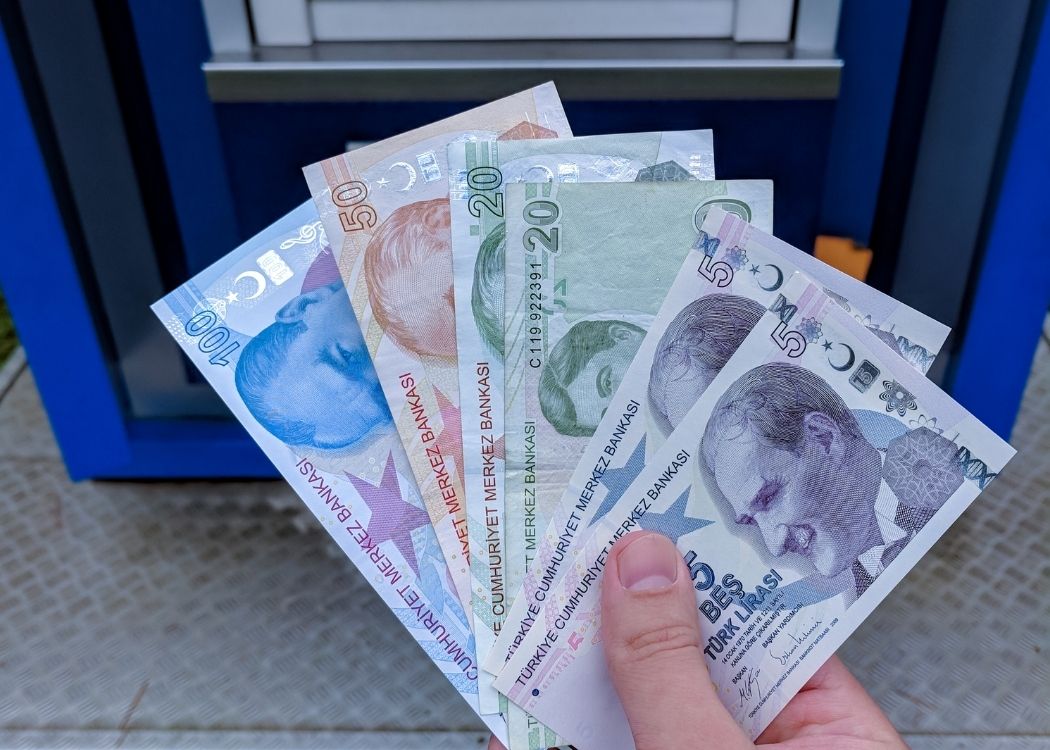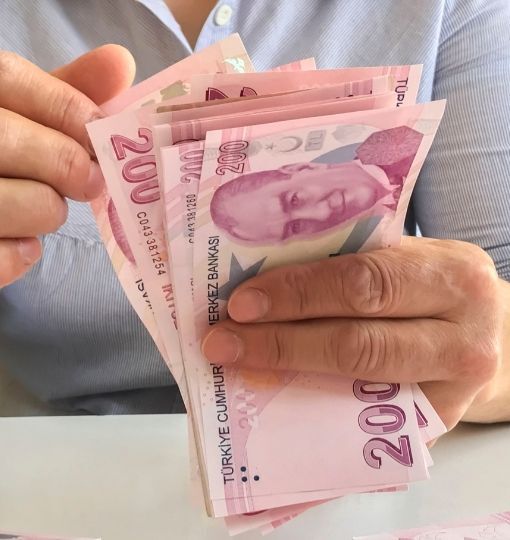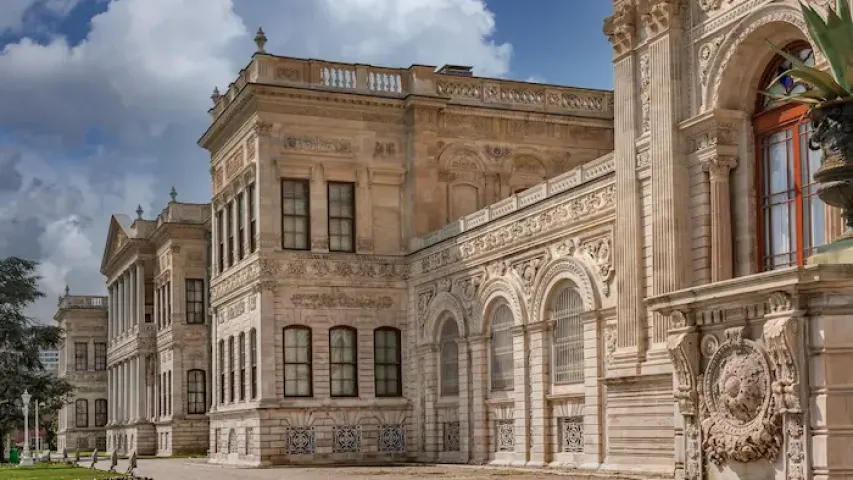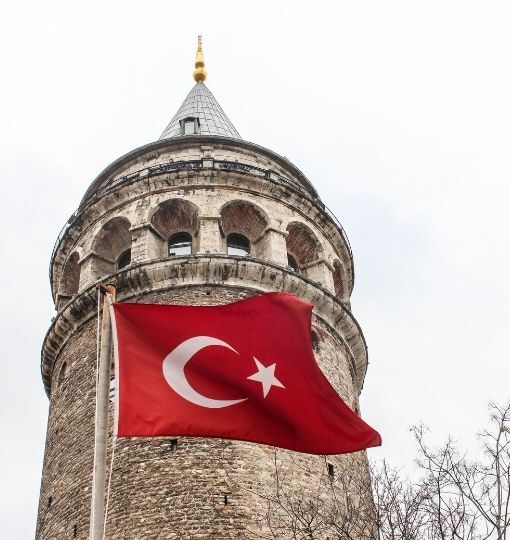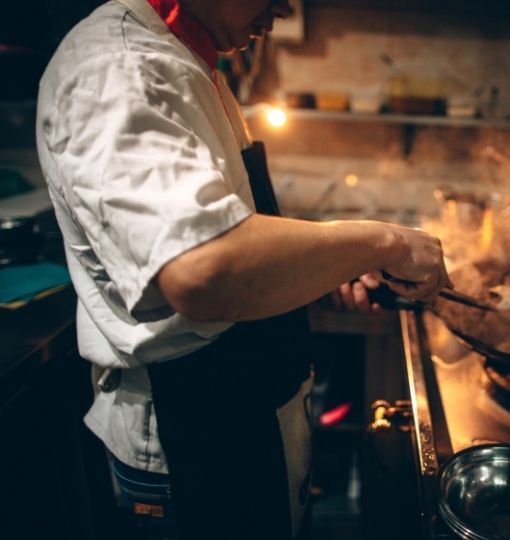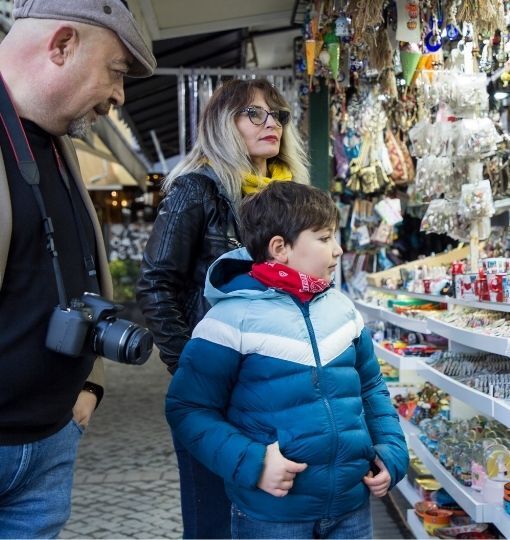In the mosaic of Turkey's rich culture, understanding its currency is a fundamental thread for any visitor. Navigating the complexities of Turkish currency is practical and enhances the immersive travel experience. From the vibrant markets of Istanbul to the otherworldly landscapes of Cappadocia, having a grasp of currency essentials ensures smooth transactions and fosters deeper connections with the country's heritage. This guide aims to give tourists comprehensive insights into Turkish currency, from its denominations and exchange rates to practical tips for managing finances during their travels in this captivating land.
Before we begin to talk about money, let’s look at the best tool your money can buy to discover Istanbul: Istanbul Tourist Pass®. More than just a digital sightseeing pass, the Istanbul Tourist Pass® is a gateway to over 100 attractions and services, carefully curated by seasoned experts in tourism. From guided tours through the historic marvels of the Hagia Sophia to skip-the-line access to the iconic Topkapi Palace, this pass offers unparalleled convenience and value. With features like discounted hop-on-hop-off bus tours and cruises along the Bosphorus, the Istanbul Tourist Pass® is the ultimate companion for explorers looking to make the most of their time in this vibrant metropolis. Now, let’s get back to the Turkish Currency.
Currency in Türkiye: Turkish Lira (TRY)
The Turkish Lira (TRY) serves as the primary currency in Türkiye, reflecting the nation's economic pulse and cultural identity. Denoted by the symbol ₺, the Turkish Lira is subdivided into smaller units known as kuruş. While coins are available in denominations of 1, 5, 10, 25, and 50 kuruş, banknotes come in values of 5, 10, 20, 50, 100, and 200 Turkish Lira. As a visitor exploring the diverse landscapes and vibrant cities of Türkiye, it's essential to familiarize oneself with the Turkish Lira's exchange rates and denominations to navigate transactions confidently. From bargaining in the bustling bazaars of Istanbul to indulging in culinary delights in Cappadocia, understanding the nuances of the Turkish Lira enhances the overall travel experience.
Authenticating Turkish Lira: Ensuring Genuine Currency
To safeguard against counterfeit currency, it's crucial to recognize the distinctive features of genuine Turkish Lira banknotes issued by the Central Bank. Here's a breakdown of key indicators:
Banknote Paper: Genuine banknotes are crafted from 100% cotton fiber, exhibiting no fluorescence under UV light. The paper is tinted in the predominant color of each denomination and boasts exceptional resistance to soiling.
Watermark: Look for Atatürk's portrait and the denomination numeral as part of the watermark, visible against the light on both sides of the banknote. Counterfeit notes may lack watermarks entirely or feature imitations.
Security Fibers: Genuine banknotes incorporate invisible security fibers that fluoresce in blue and red under UV light, a feature often imitated by counterfeiters through printing or the use of highlighters.
Security Thread: An embedded security thread runs through genuine banknotes, displaying the denomination numeral and "TL" when held to light, fluorescing in blue, red, or yellow. Counterfeit attempts may involve printed imitations.
Holographic Stripe Foil: Authentic banknotes feature a holographic stripe foil on the obverse, exhibiting colorful reflections from various angles. Counterfeits often mimic this with silvery or iridescent gilding.
Iridescent Stripe Application: The reverse side of genuine banknotes includes an iridescent stripe imprint, reflecting in translucent yellow. Counterfeit versions strive to replicate this feature closely.
Intaglio Printing: Genuine banknotes employ a special printing technique, creating an embossed effect discernible by touch. Counterfeiters may attempt to imitate this effect but often fall short.
Latent Image: An authentic banknote features a latent image within the heptagon motif, revealing the denomination numeral when held horizontally at eye level. Counterfeits struggle to reproduce this effect accurately.
Micro Lettering: Genuine banknotes contain micro lettering within the star and crescent motif, readable with a magnifying glass. Counterfeits may distort or obscure these letterings.
See-Through Image: Authentic banknotes exhibit see-through images formed by denomination numerals on both sides, aligning when held against light. Counterfeits typically fail to replicate this synchronization.
Fluorescent Ink: Genuine banknotes feature denomination numerals and "TL" printed with fluorescent ink, glowing brightly under UV light. Counterfeits employ various methods to imitate this effect.
Serial and Sequence Numbers: Genuine banknotes include serial and sequence numbers printed in black and red, fluorescing in green and red respectively under UV light. Counterfeits may show inconsistencies in fluorescence.
Size Difference: Genuine banknotes come in varying sizes based on denomination, with specified differences in length and width. While counterfeit banknotes may mimic these sizes, slight variations may betray their authenticity.
By familiarizing themselves with these features, travelers can confidently authenticate Turkish Lira banknotes, ensuring secure transactions and peace of mind while exploring Türkiye.
Can you use Euros in Türkiye?
While Türkiye boasts a vibrant tourism industry and welcomes visitors from around the globe, the primary currency used for transactions within the country is the Turkish Lira (TRY). Although Euros are widely accepted in some tourist-centric areas, particularly in hotels, upscale restaurants, and souvenir shops, it's essential to exercise caution and be prepared to pay in Turkish Lira for most purchases and services.
In major tourist destinations such as Istanbul and Antalya, establishments catering to international tourists may quote prices in both Euros and Turkish Lira. However, using Euros may result in unfavorable exchange rates and additional fees. Additionally, smaller businesses, local markets, and public transportation generally prefer transactions in Turkish Lira.
While it's convenient to have some Euros on hand for emergencies or specific purchases, travelers are advised to exchange their currency for Turkish Lira upon arrival in Türkiye. Currency exchange services are readily available at airports, banks, exchange offices (döviz bürosu), and ATMs throughout the country.
To avoid potential misunderstandings and ensure a seamless shopping and dining experience, it's advisable to inquire about accepted payment methods and currency exchange rates beforehand, particularly when venturing off the beaten path or exploring rural areas where Euros may not be as commonly accepted. By familiarizing themselves with the local currency and payment practices, travelers can navigate Türkiye with confidence and enjoy all that this diverse and enchanting destination has to offer.
Should You Exchange for Lira Before Your Turkey Adventure?
The decision to exchange currency before embarking on your adventure to Türkiye depends on various factors, including convenience, exchange rates, and personal preferences. Here are some considerations to help you make an informed choice:
Exchange Rates: Monitoring exchange rates in the days leading up to your trip can provide valuable insights into the best time to exchange currency. While it's tempting to exchange currency in advance to lock in favorable rates, it's essential to compare rates offered by banks, exchange offices, and online platforms to ensure you get the most value for your money.
Convenience: Exchanging a small amount of Turkish Lira (TRY) before your trip can be convenient for covering immediate expenses upon arrival, such as transportation from the airport or purchasing essentials. However, relying solely on pre-exchange currency may limit your flexibility and leave you susceptible to unfavorable exchange rates.
Airport Exchange Services: Currency exchange services are readily available at Türkiye's international airports, offering convenience for travelers arriving from abroad. While airport exchange rates may be less favorable compared to other options, exchanging a small amount of currency for immediate needs can be convenient, especially if you're arriving late at night or outside regular banking hours.
ATMs and Local Banks: ATMs are widely available throughout Türkiye and offer competitive exchange rates for withdrawing Turkish Lira using your debit or credit card. Local banks and exchange offices (döviz bürosu) also provide currency exchange services, often offering better rates than airports and hotels. However, be mindful of potential ATM fees and foreign transaction charges imposed by your bank.
Traveler's Checks and Credit Cards: Traveler's checks are becoming less common due to the widespread acceptance of credit and debit cards. While credit cards are widely accepted in major cities and tourist areas, carrying a mix of payment methods, including cash and cards, ensures you're prepared for any situation.
Ultimately, the decision to exchange currency before your adventure depends on your individual preferences, travel itinerary, and comfort level with managing currency exchange while abroad. By weighing the factors mentioned above and planning, you can ensure a smooth and hassle-free travel experience in Türkiye.
Best Place to Buy Turkish Lira
When it comes to purchasing Turkish Lira (TRY) for your journey to Türkiye, exploring various options can help you secure the best exchange rates and minimize fees. Here are some of the best places to buy Turkish Lira:
Local Banks: Local banks in your home country may offer currency exchange services for Turkish Lira. Contact your bank in advance to inquire about exchange rates and any associated fees. While banks typically offer competitive rates, be mindful of potential service charges and commissions.
Online Currency Exchange Platforms: Online currency exchange platforms allow you to compare exchange rates from multiple vendors and conveniently purchase Turkish Lira online. These platforms often offer competitive rates and may provide delivery services to your doorstep or allow for pickup at designated locations.
Exchange Offices (Döviz Bürosu): Exchange offices, commonly known as döviz bürosu, are prevalent throughout Türkiye and offer competitive exchange rates for foreign currency. These establishments are especially abundant in tourist areas and major cities, providing convenient access to currency exchange services.
Airport Exchange Services: While exchange rates at airport currency exchange counters may be less favorable compared to other options, they offer convenience for travelers arriving in Türkiye. Consider exchanging a small amount of currency at the airport to cover immediate expenses, then seek better rates at local banks or exchange offices.
ATMs: ATMs are widely available in Türkiye and allow you to withdraw Turkish Lira using your debit or credit card. Look for ATMs affiliated with major banks to avoid additional withdrawal fees. However, be aware of potential foreign transaction charges imposed by your bank.
Hotels and Tourist Areas: Hotels and tourist-centric areas may offer currency exchange services for the convenience of guests. While these options may be convenient, exchange rates may not be as competitive as those offered by banks or exchange offices.
Before purchasing Turkish Lira, research current exchange rates, compare rates from different vendors, and consider factors such as convenience, fees, and accessibility. By planning ahead and choosing the best place to buy Turkish Lira, you can ensure a smooth and cost-effective currency exchange experience for your travels in Türkiye.
Tips for Currency Exchange for Tourists in Turkey
Navigating currency exchange can be a critical aspect of your travel preparations. Here are some valuable tips to ensure you get the most out of your currency exchange experience:
Research Exchange Rates: Stay informed about current exchange rates for Turkish Lira (TRY) before exchanging currency. Use reliable sources such as financial websites, currency conversion apps, or central bank websites to monitor rates and identify favorable times for currency exchange.
Avoid Airport Exchange Counters: While convenient, exchange counters at airports typically offer less favorable rates due to higher overhead costs. Consider exchanging a small amount of currency for immediate needs and seek better rates at local banks or exchange offices in the city.
Compare Exchange Rates: Explore multiple currency exchange options, including banks, exchange offices (döviz bürosu), online platforms, and ATMs, to compare exchange rates and fees. Choose the option that offers the most competitive rates and transparent fee structures.
Watch Out for Hidden Fees: Be mindful of hidden fees and commissions that may impact the overall cost of currency exchange. Ask about any additional charges, such as service fees, transaction fees, or commission rates, before proceeding with the exchange.
Exchange in Moderation: Avoid exchanging large sums of money at once, especially if you're uncertain about future exchange rate movements. Consider exchanging smaller amounts periodically to mitigate the risk of unfavorable rate fluctuations.
Use Local Currency: Whenever possible, opt to pay in Turkish Lira (TRY) for transactions within Türkiye. While some establishments may accept Euros or other foreign currencies, paying in local currency often results in better value and avoids potential exchange rate markups.
Be Cautious with ATMs: Use ATMs affiliated with reputable banks to withdraw Turkish Lira. Be cautious of standalone ATMs in tourist areas, as they may impose higher fees or be susceptible to card skimming scams. Monitor your account for any unauthorized transactions after using ATMs.
Keep Receipts: Retain receipts or transaction records for currency exchanges, especially when exchanging large amounts of money. These documents may be helpful for tracking expenses, resolving discrepancies, or reclaiming unused currency upon your return.
By following these tips for currency exchange, you can navigate the process confidently, maximize your purchasing power, and ensure a smooth financial transition during your travels in Türkiye.
Tips for Card Usage in Turkey for Foreign Visitors
Using debit or credit cards can be a convenient and secure way to make purchases and access cash during your travels in Turkey. Here are some essential tips for maximizing card usage:
Notify Your Bank: Before traveling to Turkey, inform your bank or credit card provider of your travel plans to prevent your cards from being flagged for suspicious activity. Provide details about your travel dates and destinations to ensure uninterrupted card usage abroad.
Check Card Acceptance: While major credit cards like Visa and Mastercard are widely accepted in Turkey, some smaller establishments may only accept cash. Before making purchases, inquire about card acceptance to avoid potential inconvenience.
Verify Transaction Fees: Familiarize yourself with any foreign transaction fees, currency conversion fees, or international ATM withdrawal fees imposed by your bank or card issuer. Opt for cards with minimal fees or consider obtaining a travel-friendly card for reduced charges.
Use Chip-and-PIN Cards: In Turkey, most card transactions require chip-and-PIN authentication for enhanced security. Ensure your cards have an embedded chip and set up a personal identification number (PIN) to complete transactions at terminals.
Keep Cards Secure: Protect your cards from theft or unauthorized use by keeping them in a secure location, such as a money belt or RFID-blocking wallet. Avoid sharing card information or leaving cards unattended, especially in crowded areas or tourist attractions.
Use ATMs Wisely: Utilize ATMs affiliated with reputable banks to withdraw cash in Turkish Lira (TRY). Be cautious of standalone ATMs in remote or tourist-heavy areas, as they may charge higher fees or pose security risks.
Monitor Account Activity: Regularly monitor your bank statements or mobile banking app for any unauthorized transactions or suspicious activity. Report any discrepancies or fraudulent charges to your bank immediately to prevent financial loss.
Carry Backup Cash: While cards offer convenience, it's advisable to carry a backup supply of cash in case of emergency or situations where card payment is unavailable. Exchange currency at reputable outlets or withdraw cash from ATMs as needed.
By following these tips for card usage in Turkey, you can enjoy the convenience of electronic payments while minimizing fees, ensuring security, and maximizing your travel experience.
Exploring the Banking Landscape in Türkiye
Navigating the banking system in Türkiye is an essential aspect of daily life for residents and visitors alike. With a robust network of banks offering a wide range of financial services, Türkiye's banking sector plays a pivotal role in supporting economic growth and facilitating financial transactions. From traditional banks to international financial institutions, let's delve into the diverse landscape of banking in Türkiye.
Traditional Banks in Türkiye
Traditional banks, also known as commercial banks, form the backbone of Türkiye's banking sector, providing a comprehensive array of services to individuals, businesses, and government entities. These banks offer a range of financial products, including savings accounts, checking accounts, loans, mortgages, and investment services. Some of the prominent traditional banks operating in Türkiye include:
Türkiye İş Bankası (İşbank): Established in 1924, İşbank is one of Türkiye's oldest and largest banks, offering a wide range of banking and financial services to individuals and businesses across the country.
Garanti BBVA: Garanti BBVA, formerly known as Garanti Bankası, is a leading private bank in Türkiye, renowned for its innovative banking solutions, customer-centric approach, and extensive branch network.
Akbank: Akbank is among Türkiye's largest banks, serving millions of customers through its diverse portfolio of banking products and services, including retail banking, corporate banking, and investment banking.
Yapı ve Kredi Bankası: Yapı ve Kredi Bankası, a subsidiary of Koç Holding and UniCredit Group, is a prominent bank in Türkiye offering a wide range of banking services to individual and corporate clients.
Ziraat Bankası: As Türkiye's largest state-owned bank, Ziraat Bankası plays a crucial role in supporting agriculture, rural development, and small businesses, while also offering comprehensive banking services to the general public.
International Banks Operating in Türkiye
In addition to traditional Türkiye-based banks, several international banks have established a presence in the country to cater to the needs of multinational corporations, expatriates, and international investors. These international banks bring global expertise, innovative financial products, and international connectivity to Türkiye's banking sector. Some notable international banks operating in Türkiye include:
HSBC Türkiye: HSBC Türkiye is part of the global banking giant HSBC Group, offering a wide range of banking and financial services to individual and corporate clients in Türkiye, including retail banking, commercial banking, and wealth management.
Citibank Türkiye: Citibank Türkiye, a subsidiary of Citigroup, provides a comprehensive suite of banking services, including retail banking, corporate banking, treasury, and investment services, to clients in Türkiye.
ING Bank Türkiye: ING Bank Türkiye, a subsidiary of ING Group, offers retail banking, corporate banking, and wholesale banking services, focusing on delivering innovative digital solutions and personalized banking experiences.
BNP Paribas Türkiye: BNP Paribas Türkiye, a subsidiary of BNP Paribas, provides a wide range of banking and financial services to corporate and institutional clients, leveraging the global resources and expertise of the BNP Paribas Group.
Deutsche Bank Türkiye: Deutsche Bank Türkiye offers a comprehensive range of financial services, including corporate banking, investment banking, asset management, and wealth management, serving corporate and institutional clients in Türkiye.
The banking sector in Türkiye is characterized by a diverse mix of traditional banks and international financial institutions, offering a wide range of banking and financial services to meet the needs of individuals, businesses, and investors. Whether you're a resident, expat, or visitor in Türkiye, exploring the banking landscape can provide valuable insights into managing your finances, accessing credit, and investing in Türkiye's dynamic economy. With a strong regulatory framework and a competitive banking environment, Türkiye's banking sector continues to evolve, driving economic growth and financial inclusion across the country.
Using Your Revolut Card for Turkish Lira in Turkey
When it comes to managing your finances while exploring Türkiye, your Revolut card offers a convenient and efficient solution. Here's everything you need to know about using your Revolut card to access Turkish Lira (TRY) during your travels:
Seamless Transactions: Your Revolut card, powered by Mastercard or Visa, is widely accepted across Türkiye. Whether you're shopping in bustling markets or dining in local eateries, simply swipe or tap your card to make payments effortlessly.
Optimal Exchange Rates: With Revolut, you benefit from competitive interbank exchange rates when converting your home currency to Turkish Lira. This ensures that you get the most value for your money without incurring hefty exchange rate markups.
Avoiding DCC Traps: Be wary of Dynamic Currency Conversion (DCC) offers, which may come with inflated charges. Opting for Revolut's transparent currency conversion helps you avoid unnecessary fees and ensures fair exchange rates.
ATM Access: Your Revolut card allows you to withdraw Turkish Lira from ATMs throughout Türkiye.
Keep in mind:
Free Withdrawals: Depending on your Revolut plan, you may be entitled to a certain number of complimentary ATM withdrawals per month. Going over this limit may result in a small fee.
ATM Fees: Some ATMs may charge additional withdrawal fees. Look for ATMs with "no foreign transaction fee" signs or consider using Halkbank ATMs for fee-free transactions.
Flexible Top-Up Options: Topping up your Revolut card with Turkish Lira or other currencies is quick and easy. You can load funds before your trip or add money on the go using the Revolut app and your preferred payment method.
In addition to these tips, consider the following:
Multi-Currency Revolut Card: If you frequently travel to different countries, a multi-currency Revolut card allows you to hold and exchange various currencies as needed.
Notify Revolut: Inform Revolut of your travel dates to prevent any potential issues or card blocks while abroad.
Utilize the Revolut App: Stay informed with real-time exchange rates, track your transactions, and manage your Revolut card conveniently through the user-friendly app.
By leveraging the features of your Revolut card, you can navigate Türkiye with confidence, enjoying seamless transactions and access to Turkish Lira whenever you need it.

